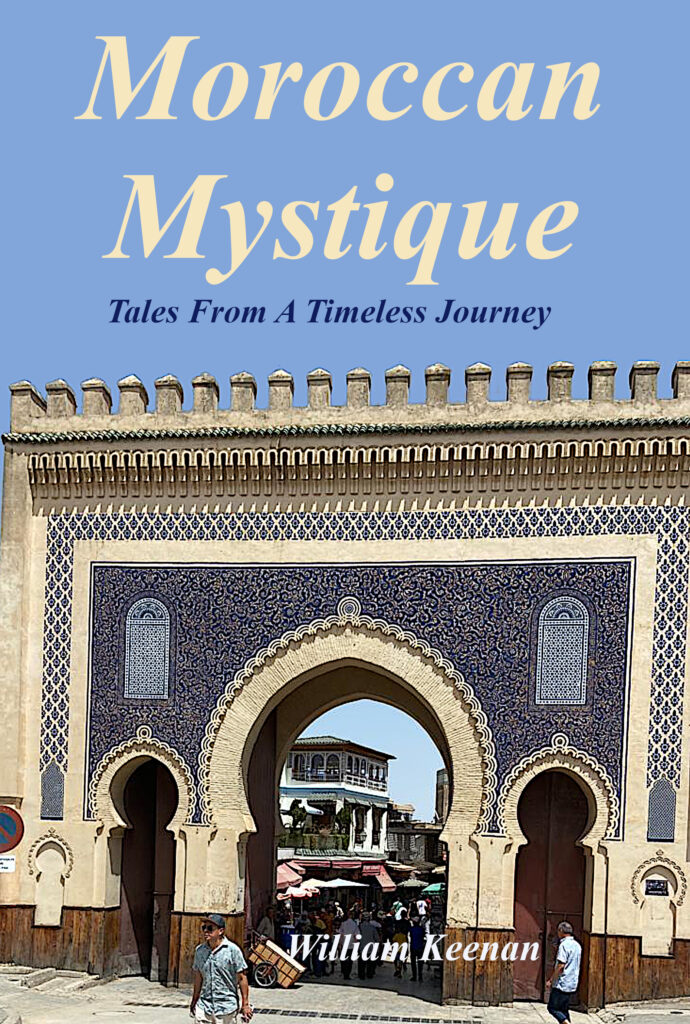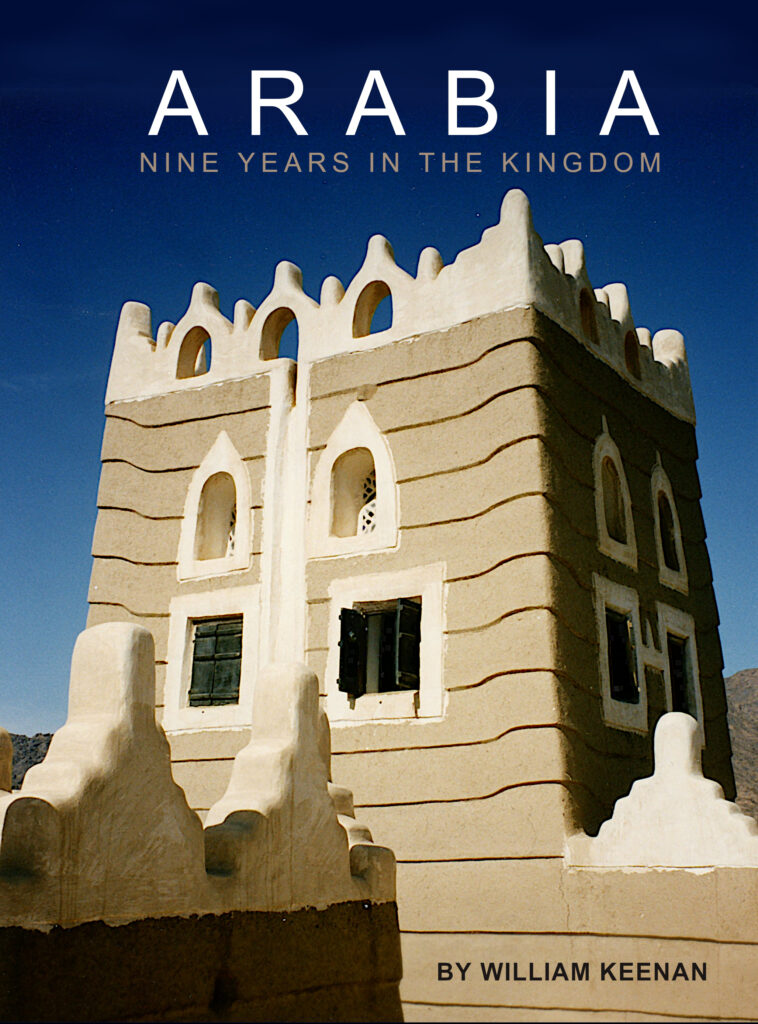

What inspired you to write Moroccan Mystique?
I lived and worked in Morocco for four years in the 1970s, and like so many people who visit there, I was inspired by the incredible architecture, wonderful food, and mesmerizing music and dance. Because I was working at an American Cultural Center, I was able to develop friendships with the Moroccans who worked or participated in activities there. These friendships became windows into Moroccan culture at a depth that few foreigners have the opportunity to experience. It is because my experiences were so unique that friends have been encouraging me to share my stories in a book and in 2022, I finally found the time to finish the book.
Which are your favorite cities in Morocco?
I lived in Fez for four years, so I am naturally very partial to its historic old Medina, which was founded in the ninth century. Fez is a living artisan’s museum. Men and boys work in brass, leather, gold, silver, tile, carved plaster, pottery, carpets, and furniture. Women and girls work in textiles, creating beautiful carpets, embroideries, etc. They excel in intricate Islamic designs that require painstaking attention to detail. As an artist myself, I was constantly humbled by a city that survived by their devotion to their crafts.
Then of course there is Marrakesh, which also has an amazing tradition of handcrafts and stunning architecture. The Marrakesh Medina is not as large or as charming as the Fez Medina, but it has an incomparable sense of intrigue that is associated with bordering the Sahara. The Jemaa El Fnaa Square with its snake charmers, Gnawa dancers, and street food has attracted tens of millions of tourists over the decades. Marrakesh has also become a Mecca for wealthy Europeans and Americans, who have renovated the city’s riads, which are mansions designed around an atrium courtyard.
Tangiers is another intriguing city. Its location at the Strait of Gibraltar offers beaches and stunning views of both the Mediterranean and Atlantic coastlines. For decades Tangier was designated an international city, and it became a magnet for artists and writers from around the world.
How would you describe your writing style?
I am simply a teller of true stories. You might describe my two books as cultural autobiographies. That is to say, although I write about my personal experiences, friendships, and perceptions, my primary focus is always on the culture that I was experiencing. I see my role as simply being a window into a culture at a depth that few foreigners have experienced.
Who was your editor?
My wife is a document editor and a ferocious reader. She is my primary editor although I also sought peer review from friends who lived or traveled in Morocco. My tales are in themselves quite engaging, however because I have an academic background in Middle East studies, I can get detoured with academic minutia that is not interesting to all readers. So, my wife/editor is the gatekeeper who keeps the narrative moving forward. One way we were able to resolve this problem was to add a glossary at the end of the book to make sure that readers who want it could easily get more explanation of unfamiliar terms, such as Berber, Suni, Shi’a, Sufi, Djinn, Gnawa, etc.
What was your best experience in Morocco?
Well, I had many wonderful experiences. I suppose that the wedding reception that featured a famous Moroccan violinist was the most memorable. The band consisted of the violin, an oud, and an Arabian wood flute. The music was absolutely divine and permanently altered my taste in music. I was also inspired by the elegant dancing of the Moroccan women. I had already seen pretty amazing belly dancing in restaurants and hotels, but this was something quite different. Their movements and hand gestures were slow, elegant, gentle, and expressive. They became the physical embodiment of the melodies of the exquisite violin.
What was your worst experience in Morocco?
My first day in Morocco was definitely my worst day. I was in the Tangier Train Station buying tickets to Fez, when a thief wrestled my wallet away, which contained our passports and all our money save the ten dollars in change I got back from buying the train tickets. There I was, twenty-two years old, near penniless, and suffering severe culture shock. Fortunately, in the end it all worked out for the best, which is why the first chapter is titled Fate Disguised As A Thief.
Your second book is about Saudi Arabia. What inspired that book?
Actually, Arabia was the first book that I wrote. That was in 2002, the aftermath of 9/11. We returned to the United States after working in Saudi Arabia for nine years. I was contacted by a New York publishing agent who was a friend of a friend. He was aware of my experiences in Saudi Arabia and thought that there was a book in the making. I wrote the original manuscript rather quickly, as it was simply an accurate accounting of my encounters with Saudi culture.
The book was originally titled One God, Too Many Prophets, although my wife said with a title like that I might as well call it One Too Many Fatwas. Anyway, my agent procrastinated too long and by the time he got the manuscript to the major publishers, they were already saturated by every professor or ex-ambassador ever associated with Saudi Arabia. A religion publisher was interested but we decided not to put ourselves at risk over an insignificant contract. After I published Moroccan Mystique, I decided to repackage my Saudi book putting it into all the social change that has taken place in Saudi Arabia over the last eight years.
How would you compare your two books?
I think most people would say that Moroccan Mystique is a more entertaining read. Although some readers say that Arabia is actually more interesting in that Saudi Arabia is more controversial and more important geopolitically. Because Saudi Arabia is the birthplace of Islam and a much more conservative country than Morocco, I spend much more time talking about what the Saudis think about their religion, how they practice it, and how all of that has changed since Crown Prince Mohamed bin Salman became the de facto head of state in 2016. I know a lot of people are put off by too much discussion of religious dogma, but it is just impossible to seriously discuss what Saudi Arabia is all about without an insightful discussion about Islam – its history and its role in contemporary society. I have had people tell me that they weren’t sure they would find it entertaining but found it to be quite fascinating.
Do you have plans for any more books in this genre?
Yes, we lived in England for eight years and we have done some preliminary work on a book. However, on this one I will have to rely much more on my wife as she is the lifelong aficionado of British history and everything royal. Our British friends thought she was quite fascinating and didn’t understand why she had such a boring husband. We were very fortunate to be able to spend so much time in England. It is very difficult for Americans to get work visas, so we cherished our time touring the London museums, the Cambridgeshire countryside, the Yorkshire dales, the Cornish coast, the Cotswold, and so much more. We are looking forward to sharing our tales of such special places.